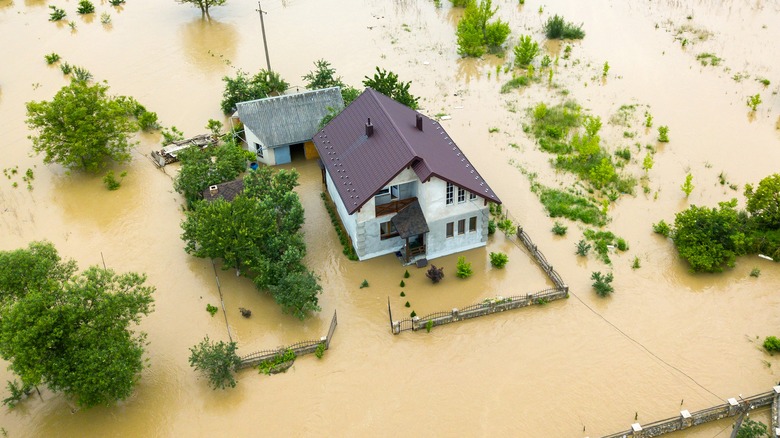Mortgage Lenders Are Beginning To Take Climate Change Into Account
Many people do what they can to reduce their carbon footprint, like recycling or turning off the lights when they leave the room — but scientists are warning that small actions might not be enough going forward. On March 20, 2023, The U.N. Intergovernmental Panel on Climate Change released a stunning report, warning that catastrophic dangers lie ahead if aggressive measures are not taken quickly to reverse global warming, as noted by The Washington Post. They noted that they believe climate disasters will worsen so much that it will be difficult for people around the world to adapt.
How does climate change impact the real estate industry? It isn't exactly obvious. Most people buy and sell homes based on the location and, in some cases, what type of green project upgrades they can make to lower costs and create sustainability. Yet, new insight into the dire condition of the planet's environment is leading everyone to take a closer look at what they can do, including within the real estate market.
Why lenders are taking a closer look
Researchers are always looking for a way to better understand the value of homes. Buying in climate-risk areas, such as those with there's a high risk of wildfires or hurricanes, often means paying higher home insurance rates. Yet, researchers now believe that in some of these places, particularly those prone to flooding, home values are oversaturated.
CNBC's Diana Olick reported that one group of researchers found that properties in the US exposed to flood risk are overvalued by as much as $200 billion, which is a big part of the country's $12 trillion real estate market.
With the risk of severe climate change, mortgage underwriting institution Fannie Mae is working to better understand how these factors impact actual home value and risks. To do so, it launched climate-risk modeling firms to help with gathering data, analyzing it, and factoring it into the value of a home.
The data they plan to use could change mortgage underwriting
Speaking to Olick during an interview, Tim Judge, Fannie Mae's Chief Climate Officer, says the organization has specific goals related to these tools. He says, "We really are interested in not only what the current state is of natural disasters and the impact of our book of business, but also what US housing will look like decades in the future."
A key concern with climate change is that consumers are not aware of the risks of climate change to their homes, and they are likely unaware of the future costs such an incident can create for them if damage were to occur. As for the most recent data, many lenders are not factoring in climate risks into the bigger picture when it comes to lending and underwriting, but that could change in the future. There is concern that as climate change worsens and more homes suffer damage from it that this could lead to higher rates of defaulting on loans and may create prepayment risks for the industry. It may even impact house prices.


